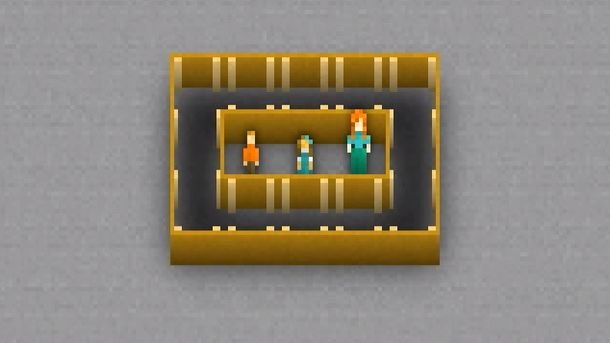Passage developer Jason Rohrer makes the case against Steam sales

Indie developer Jason Rohrer has confirmed that his “massively-multiplayer game of burglary and home defense,” The Castle Doctrine , will be available on Steam on January 29. The game will cost $12 for the first week after it hits Steam, and then go up again to its full, final price of $16. There will never be a Steam sale for the game, however, because Rohrer thinks the sales “screw fans.”
In a post on his website , Rohrer admitted that that is a blunt way to put it, but he backs it up with a detailed argument. In short, Rohrer thinks that Steam sales and bundles train consumers not buy games for full price, as there is always another sale around the corner.
“Even in economic terms,” he said, “the extra utility of playing the game early, at release, is not big enough to offset the extra cost for most people. It makes more sense to wait, unless they love you and your work so much that they're willing to throw economic reason out the window.” And then, on the other end, are those who did buy the game at full price and feel betrayed later when it goes on sale.
Rohrer also thinks that sales reduce a developer' revenue over the long term. He uses graphs to illustrate his point, which you can check out on his website, but the basic argument is that “If just half of the players who buy the game during a 50 percent off sale would have bought the game at full price if that was their only option, we'd already have a wash. What fraction of sale-waiting players fall into this category? I suspect way more than half.”
Rohrer's solution is to copy the Minecraft model, meaning the price starts low and rises over time. Economically, it incentivises people to buy games at launch, and emotionally there is no heartache caused by paying a full price for a game that went on sale a few hours later.
I appreciate the transparency, but I suspect that not as many people would buy the game at full price if that was the only option. Anecdotally, I have many of games in my library that I got on sale or as part as a bundle. Some have turned out as gems that I never would have discovered otherwise (I just wasn't going to spend more than $5 on Strike Suit Zero), while other may never even get installed. And then there are other developers with equally compelling graphs that argue the opposite.
Keep up to date with the most important stories and the best deals, as picked by the PC Gamer team.

